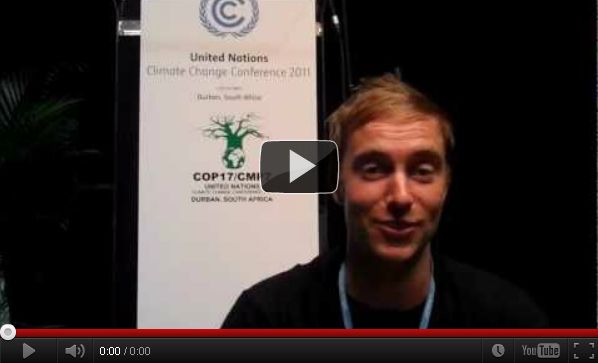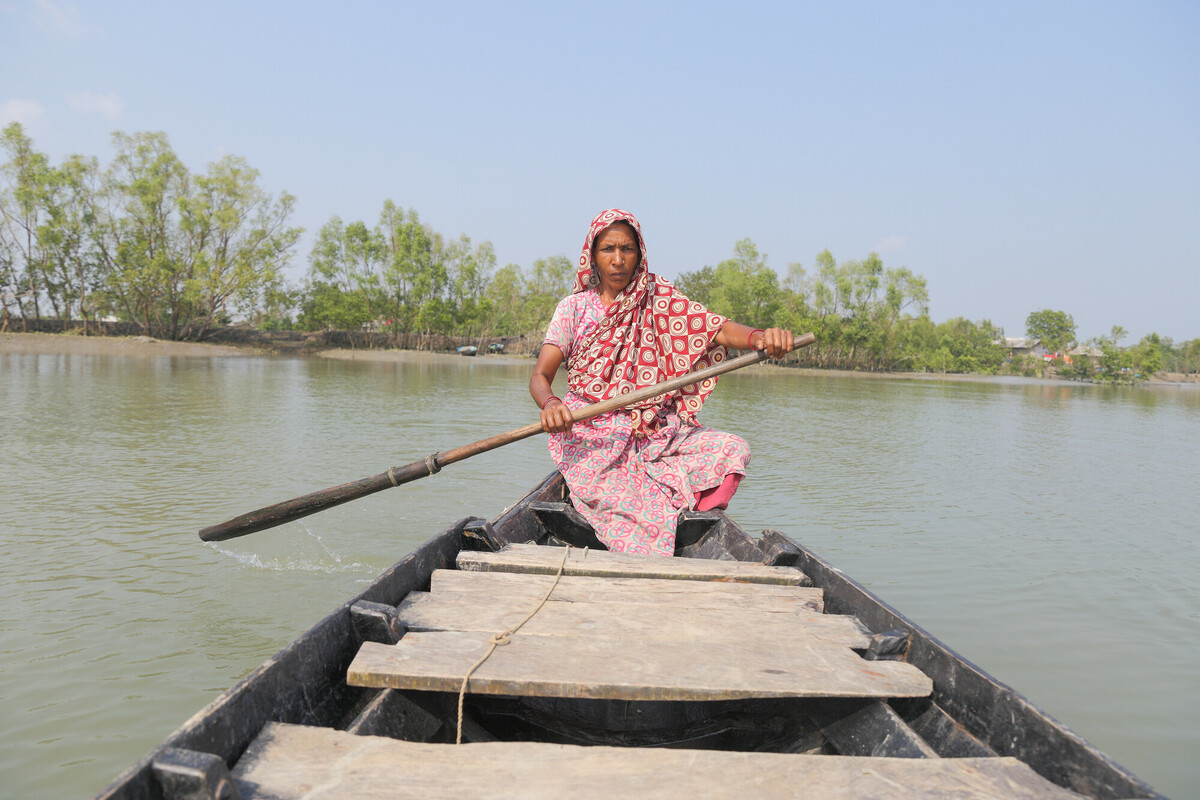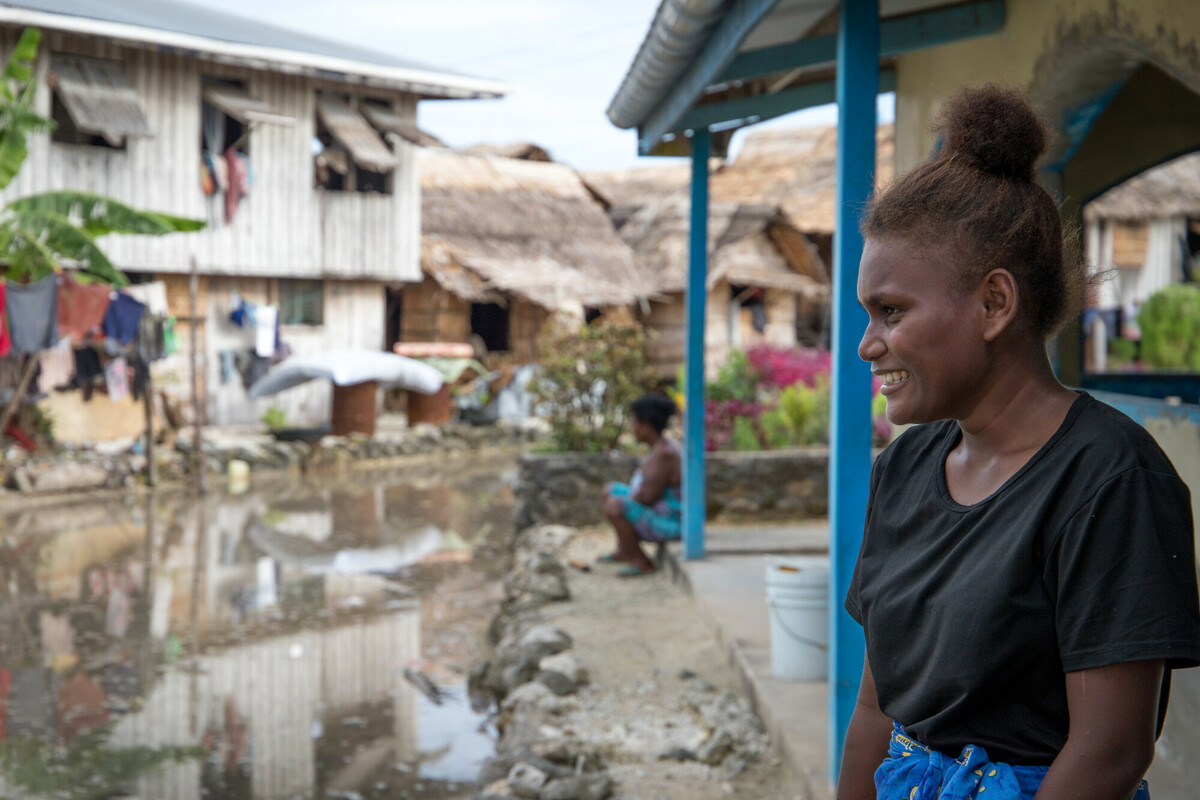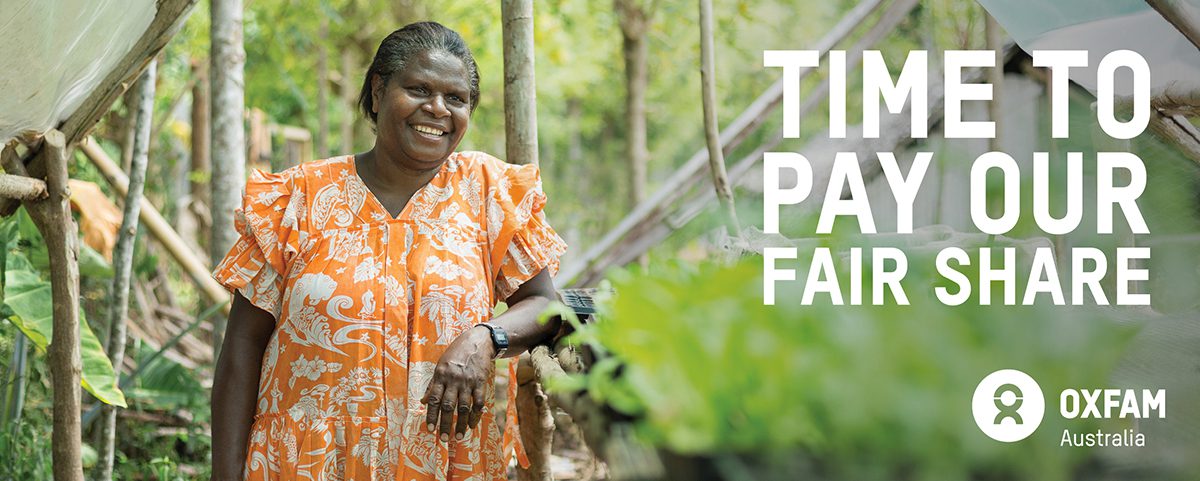Dark, humid, noisy and little ventilation. This is the location of the Australian Government offices here at the UN climate talks. It is also where on Wednesday morning, some colleagues and I had the chance to meet with Australia’s Minister for Climate Change and Energy Efficiency, Greg Combet.
Although this was a very short meeting, I took the window of opportunity to hand over messages from some Australian supporters and a big poster in the form of a to-do list which calls on Minister Combet to do the following here at the UN climate negotiations in Durban:
- Ensure that the global Green Climate Fund is up, running and designed to help poor people, especially women – adapt to the impacts of climate change and embark on low carbon development.
- Fill the global Green Climate Fund with money from shipping emissions and a robin hood tax
- Ensure poor countries avoid the worst impacts of climate change – global warming above 1.5 degrees will mean catastrophic impacts for Pacific Island & African nations.
- Keep the Kyoto Protocol alive – it’s the only current international agreement to tackle climate change and we need it.
We pressed him about the need to get agreement in Durban on long-term sources of climate finance to fill the Green Climate Fund. At last year’s UN Climate Summit, the world reaffirmed its commitment to provide $100bn per year by 2020 to flow through the fund.
In response, Minister Combet stated that “Australia is committed to long-term finance and getting the Green Climate Fund up”.
Minister Combet also spoke about the need for an “environment effective outcome” on the Kyoto Protocol and reiterated the government’s position for a global agreement, which covers all major emitters. The Kyoto Protocol covers most developed, with the exception of the US, and is due to expire at the end of 2012.
Many countries have passionately called on the global community not to let Africa be the deathbed of the Kyoto Protocol. Many developing countries including small islands states like Tuvalu and Kiribati are calling for negotiators to give life to a second commitment period of the Kyoto Protocol as a stepping stone to a fair, ambitious, legally binding agreement by no later than 2015.
Significantly, China is suggesting it could commit to legally binding commitments to reduce emissions in the future, whilst the US is playing a blocking role on the big issues of a future global agreement. Increasingly the US is being asked to either step up or step aside and let others move forward.
With three days to go at this year’s UN Climate Summit, Ministers from all countries have parachuted in to negotiate the final pieces of the jigsaw. Australia can play a positive role here at Durban by working with its negotiating block, which includes countries such as the US, New Zealand and Norway to make progress around a legal deal and also support calls to fill the fund with new long-term sources of money like a charge on shipping emissions and a Robin Hood Tax.
Finally, a big thankyou to the hundreds of supporters who sent a to-do list to Minister Combet. Your commitment to action on climate change is inspiring and vital to ensure our government takes the next steps in tackling climate change.
You can send tweets to the UN Climate Summit by tweeting @tcktcktck with the hashtags #COP17 and #UNFCCC
Clancy Moore is blogging from the UN Climate Summit in Durban, South Africa as part of Oxfam’s UN Climate Tracker project.



